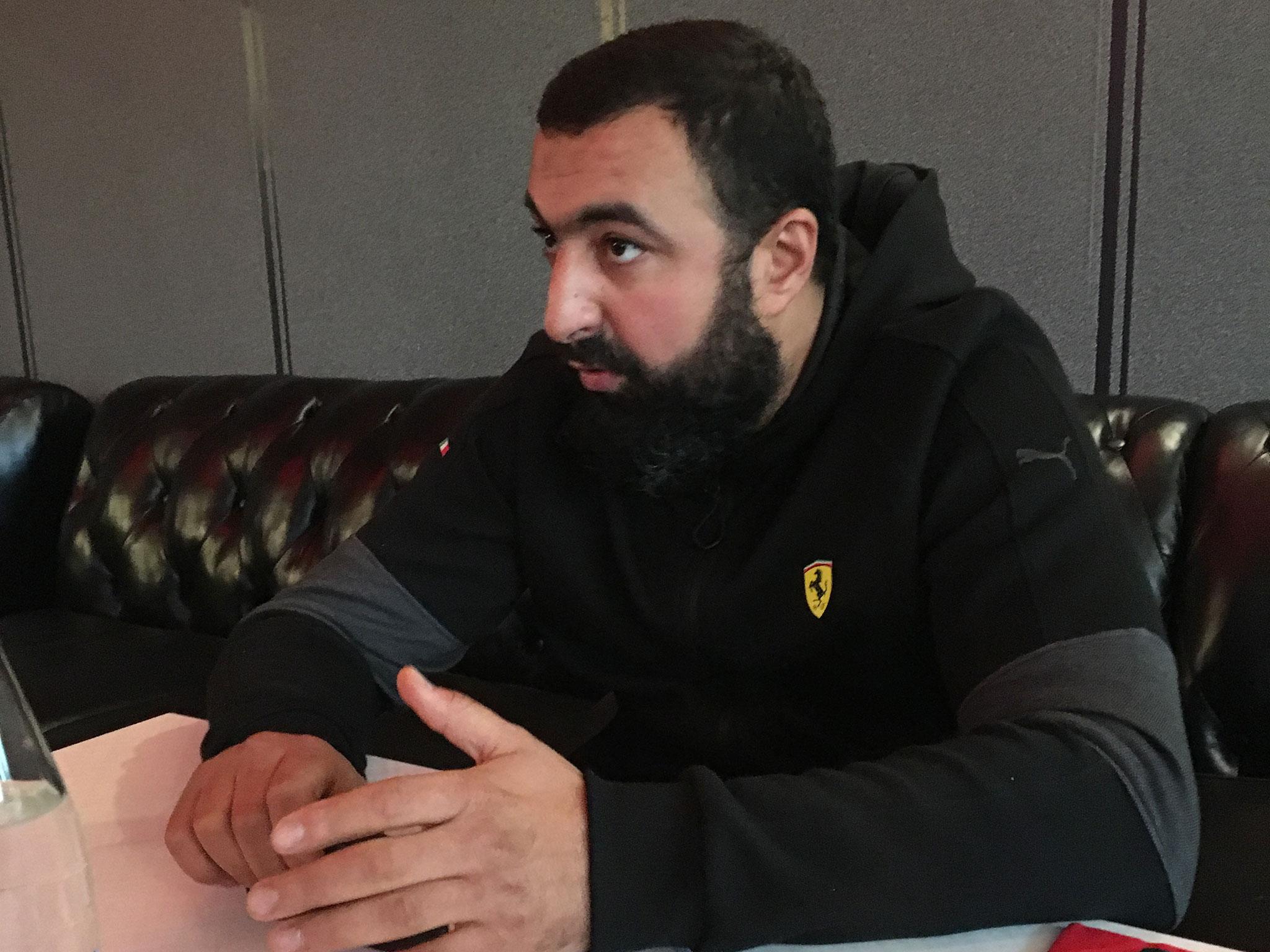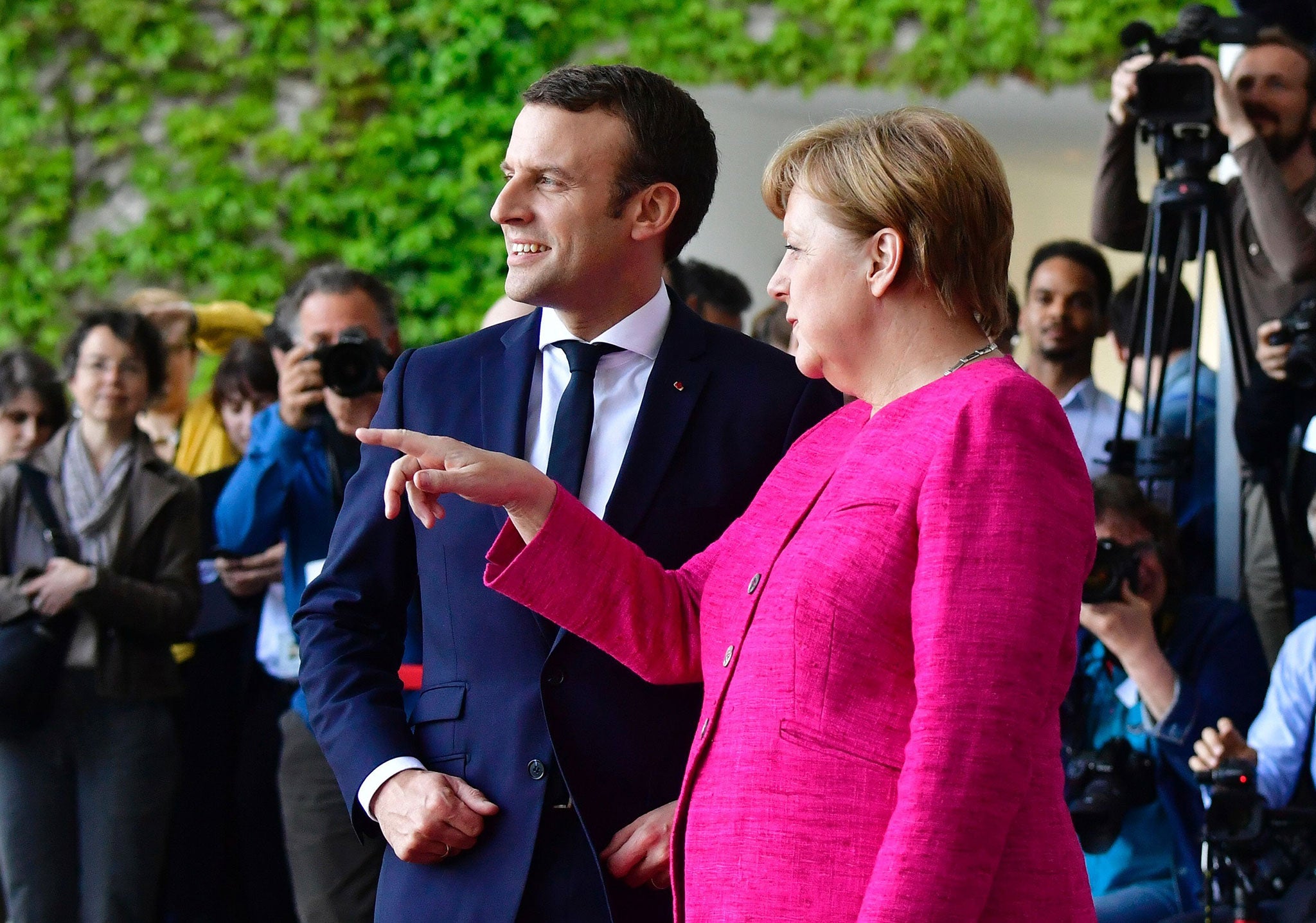French Muslim arrested in roundup after Paris attacks says Macron victory cannot give him his life - or his country - back
Exclusive: 'How can I believe in a state which almost destroyed my life? My family's lives?'

Your support helps us to tell the story
From reproductive rights to climate change to Big Tech, The Independent is on the ground when the story is developing. Whether it's investigating the financials of Elon Musk's pro-Trump PAC or producing our latest documentary, 'The A Word', which shines a light on the American women fighting for reproductive rights, we know how important it is to parse out the facts from the messaging.
At such a critical moment in US history, we need reporters on the ground. Your donation allows us to keep sending journalists to speak to both sides of the story.
The Independent is trusted by Americans across the entire political spectrum. And unlike many other quality news outlets, we choose not to lock Americans out of our reporting and analysis with paywalls. We believe quality journalism should be available to everyone, paid for by those who can afford it.
Your support makes all the difference.Halim Abdelmalek did not vote in the elections which have just been held in France. As a suspected terrorist he is disenfranchised, and would have needed special permission to do so. In any event, he feels he has lost faith in the political system of the country he used to be proud to call his home.
Mr Abdelmalek is officially a suspect despite the fact that he has never been tried for, let alone convicted of, any terrorist offences. Indeed, he is the first and so far only person to have an order of indefinite house arrest overturned by a court.
The 35-year-old mechanic got back his freedom after a lengthy and mentally taxing legal struggle. Hundreds remain prisoners in their own home, also without trial, following the sweeping arrests which followed the murderous attacks by Islamist extremists in the past few years.
“How can I believe in a state which almost destroyed my life, my family’s lives? Which ruined my business? No, I did not vote in this election, I do not feel part of it,” Mr Abdelmalek tells The Independent.
The victory of Emmanuel Macron over Marine Le Pen was the subject of intense international focus but, says Mr Abdelmalek, it will have little effect on his lives or those of other Muslims who are considered to be enemies of the state.

Mr Abdelmalek wanted to stress that he does not believe, like some fundamentalist Muslims, that Islam does not allow temporal power to govern and thus taking part in elections is wrong. If he had voted, it would have been for Jean-Luc Mélenchon, the far-left candidate. “He was the best of those standing, he wanted to defend the interests of ordinary, working-class people, Christians, Muslims or whatever. But politics mean little to me now.
“I think not much is going to change now. There will be people accused of terrorism because of religion, made to feel unwelcome in what we thought was our country.”
One could argue that France had taken a firm step away from xenophobia and bigotry. Ms Le Pen and her party, the Front National, had believed that playing the race and religion card, playing up the "Muslim threat" amid the repeated terrorist attacks the country had suffered, would give them the long-sought after breakthrough. That did not happen, with the centrist Macron winning comprehensively.
But the feeling of alienation and anger in a worryingly fractured society remains, with the relentless series of Islamist atrocities raising fear and suspicion, and reinforcing the search for the threat within.
One of the most high-profile of the atrocities was the murder of 12 people at the Paris offices of Charlie Hebdo magazine in January 2015. Four months later, Mr Abdelmalek was seen in an area where one of surviving members of the magazine staff lived, on a scooter, talking on his mobile phone. The authorities claimed that he was carrying out reconnaissance, taking photographs and relaying information on his mobile phone, possibly with the aim of carrying out an attack.
Mr Abdelmalek vehemently denies this. He took no photographs; the telephone call, he insists, was to his wife; he was in that particular area because it was on the way to his mother’s house nearby; and he had no idea that any member of the Charlie Hebdo staff was living there.
“I would also like to say that I completely condemn the killings at Charlie Hebdo, I feel very sad for the people who died and their families. I feel the same way about this as other French people, I understand the pain of what had happened," he says. “I am not an extremist and I would not support this kind of violence in any way.”
Mr Abdelmalek found a message asking him to report to a police station the next morning. There he was questioned and his phone was confiscated and analysed. No searches were made of his home, however; his computers were not examined. No charges were brought against him and he was not detained.
He continued with his life, which was going well. His business – recovering and repairing broken down motorcycles – was prospering, with four people working for him and fifth about to be hired. He could afford to send his two young sons to a private school partly to ensure good educational standards and also so that they mixed with children from a wider social background and learned languages, including English.
There the matter appeared to rest. Islamist terrorism in France, meanwhile, continued. In November 2015 there were the multiple coordinated assaults in Paris killing 130 people, 89 of them in the Bataclan theatre. Three days later Mr Abdelmalek received a letter asking him to report to a police station.
“I thought it may have been something to do with one of my employees. I went along, the receptionist at the police station was friendly and chatty at first, but her expression suddenly changed when she checked my name,” he recalls.
“She made a call and next thing I know is that five police officers came bursting in to the reception area and grabbed me. I tried to say to them that I would hardly have come to the police station if I had planned to run away. But I was dragged away for interrogation and then told that I was being put under house arrest under the state of emergency rules.”
The prosecution service did not accuse Abdulmalek of any involvement in the November attacks. His incarceration, they said, was in connection with the alleged spying on the Charlie Hebdo journalist from the previous year and an alleged smuggling of a stolen car, eight years ago, to raise money for Islamist rebels in Yemen. He was also accused of frequenting a Salafist mosque where extremist preaching had taken place.
Mr Abdelmalek had already been questioned about the car smuggling in the past – as he had been about the supposed Charlie Hebdo surveillance – without any charges being brought. His house arrest, and those of many others, he believes, was a result of Francois Hollande’s government needing to show an alarmed public that it was taking stern action over terrorism.
A burly, bearded man, softly-spoken and jovial, Mr Abdelmalek insists that he that was against violence and an advocate for peaceful dialogue. He had, he acknowledges, attended a hardline Islamist mosque in the past, but claimed that he no longer did so.
“Some people have a curiosity about their religion, especially when they are young, and that was the way with me. I don’t see why that should be used against someone for the rest of their lives,” he argues. “At the end of the day they would have charged me if they had proof of what they were accusing me of. They did not, and a court has said there is no proof.”
The regime of what comes under the broad term of house arrest varies between individuals. For Mr Abdelmalek it meant being confined to his home in the evening and night and reporting to a police station three times a day. He was also barred from stepping outside his neighbourhood of Vitry.
This had a drastic impact was on his business. He was forced to make three of his employees redundant. Home life came under great strain, his income was cut; his two sons, four-year-old Mohammed and Ayoub, six, had to study for a while from home because his wife, Malika, who does not have a driving licence, could not drive them to school.
“The worst thing is the uncertainty, not knowing what was going to happen, how long this really bad dream was going to continue. My children were very upset; they did not know what was going on. My wife was very strong, but obviously she was very worried. I felt bitter, angry about what had happened.” he recalls.
“It became impossible to keep working with all the restrictions I had. Just when the business was growing, we lost 60 per cent of the business and I had to sack three of my people. I felt really bad about that, but there was no choice. My reputation really suffered, I was someone to be suspected, to avoid.”
Mr Abdulmalek was determined to clear his name, but he found it difficult to find lawyers to represent him. “People were reluctant to defend someone detained over terrorism, that was the mood at the time," he says. “But, at the end, I managed to get lawyers and they were very good, they worked very hard to get me free.”
A problem with mounting a defence in such cases is that a lot of the prosecution case is intelligence based and sources are kept secret in order, say the prosecution, not to compromise them and put them in danger.
“It is what they call ‘white notes’, they say this is confidential evidence, but, to me, they were anonymous gossip or just things which were manufactured. They had those and they had a photograph of me in the area where the Charlie Hebdo gentleman lived which was very nearby.
“My lawyers asked why someone’s life should be destroyed on the basis of something like this? We had two appearances before the Council of State. The arguments were very forceful from both sides, but the court found in my favour. I was very, very relieved.”
The Ministry of the Interior decided not to lodge an appeal against the verdict. But, under the penal system as an official suspect he could be detained again.
“We are looking at what else can be done. We are adjusting back to life, my sons are back at school now which is very good. But it is going to be very hard to get my business back to working again,” he reflects.
“The situation is not good here, there is so much uncertainty and suspicion. I would really like to live in a place where people weren’t judged by their religion, the way they looked. I wish I could say the election would make it happen here, but I don’t think that will be the case, sadly.”
Join our commenting forum
Join thought-provoking conversations, follow other Independent readers and see their replies
Comments